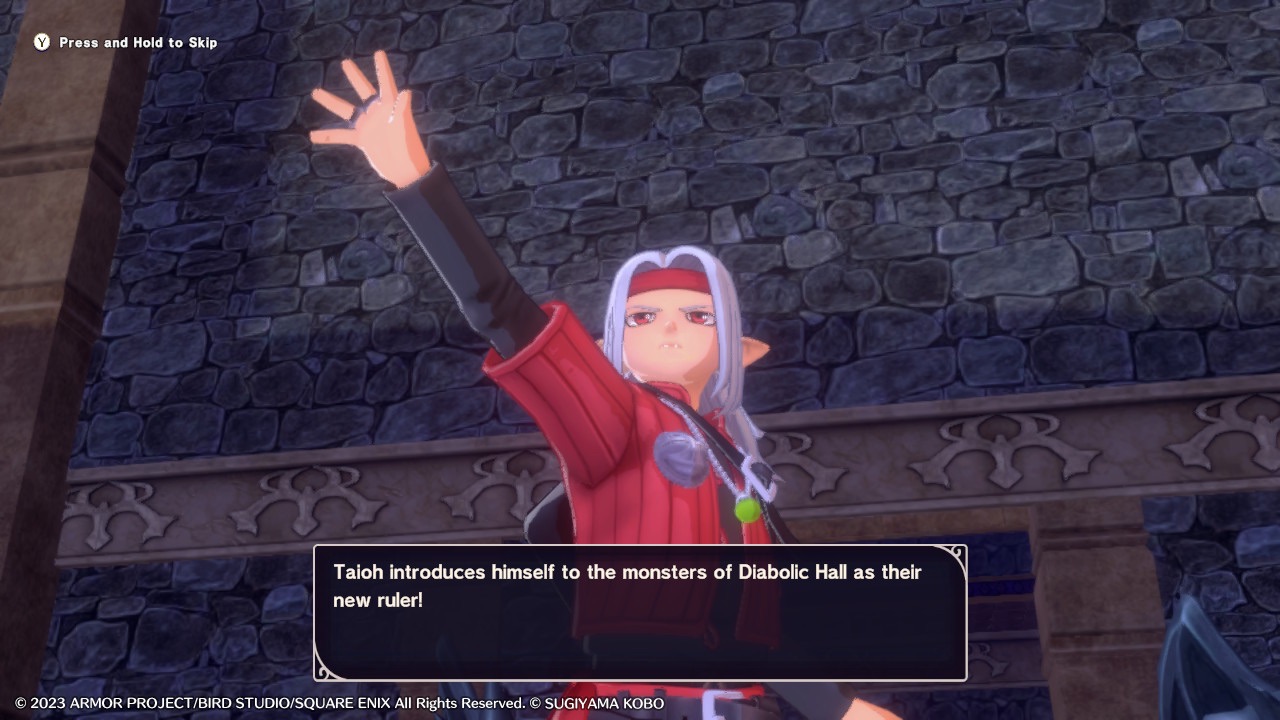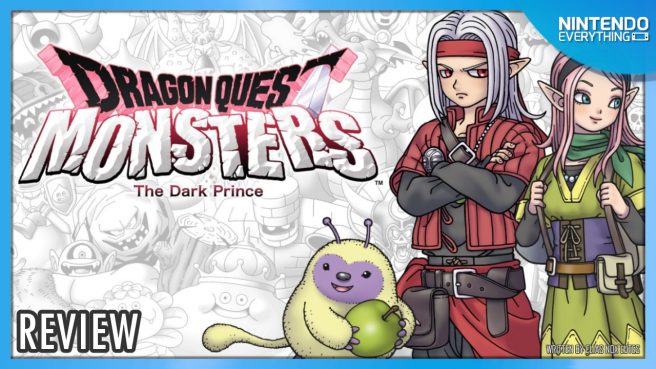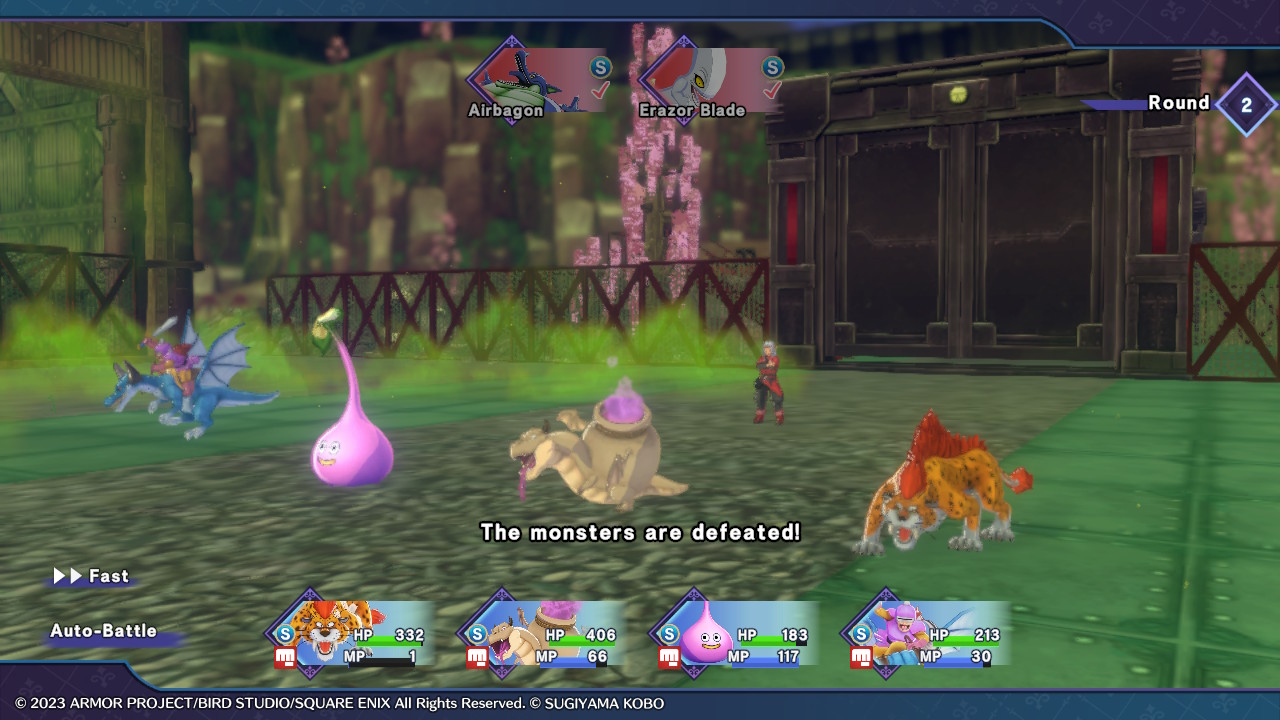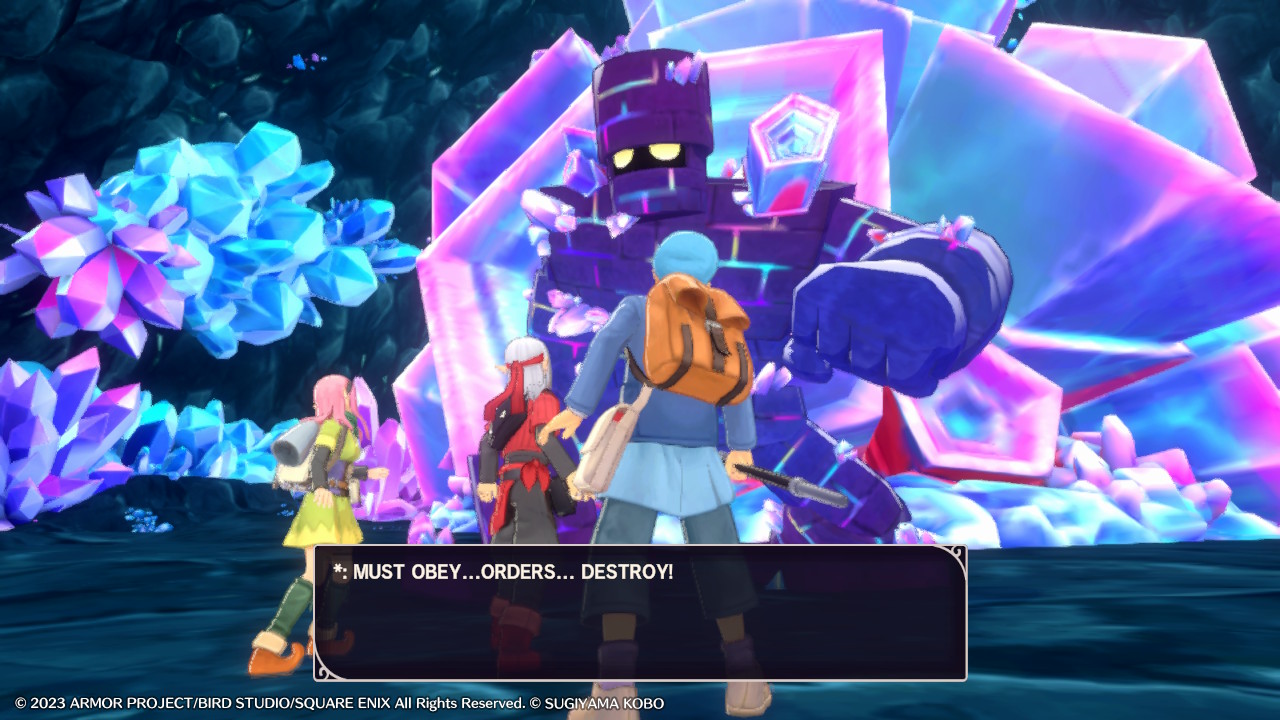[Review] Dragon Quest Monsters: The Dark Prince
System: Switch
Release date: December 1, 2023
Developer: Square Enix / Tose
Publisher: Square Enix
There has been a resurgence of great turn-based RPGs over the last decade – the Switch itself becoming somewhat of a bastion for fans of long stories and level grinding, with no shortage of adventures to unwind with as the system moves ever onward in its lifespan. Monster taming games have been around for quite some time, emerging in 1987 with Megami Tensei, a mature-themed romp through a world of demons and pacts, but soon joined by more lighthearted franchises like Dragon Quest V’s monster recruiting mechanic, Pokemon’s Game Boy games launching to huge success, and the lesser known series Monster Rancher’s disc-related gimmick spurring many monster-taming fans to action placing every CD they could get their hands on into their PlayStation in order to spawn a new and potentially powerful creature. Dragon Quest Monsters’ titles play more like your classic castles and dragons adventure, just with a team you raise and strengthen a little differently than you might if you were playing something like Final Fantasy. The series now returns with Dragon Quest Monsters: The Dark Prince, and players will get to see another side to a mainline game’s most evil villain character while simultaneously becoming a very powerful monster wrangler.
Dragon Quest Monsters games have a familiar core gameplay loop: befriend monsters, strengthen those monsters, take on the ranks in the coliseum, fuse your monsters into stronger monsters, and repeat. As a child who brought their Game Boy with them everywhere in the late 90s to early 2000’s, I was no stranger to finding monster eggs on the world map, training up strong guys and folding them into one another to synthesize a stronger monster, and spending way too many resources to make an old favorite a bit more viable in the late game. Dragon Quest Monsters is, at its core, all about assembling the strongest team you can. You can do this in a variety of ways, all of which will involve time and planning.
Our protagonist this time around is named Psaro. If you’ve played Dragon Quest IV: yes, that Psaro, the one who just so happen to be a main antagonist for the hero and their party, but that is not the story we will be focusing on this time. We will be looking into what happened before Psaro became a deadly manslayer, and what lead up to his distaste for humanity as a whole.
Psaro is half monster, and half human. With his mother fading fast from a long time illness, Psaro decides to confront his father and ask for his power to help save her, but the boy’s dad isn’t keen on having demands being made of him and instead bestows his son with a curse: he can no longer harm a monster. Finding refuge in Rosehill Village, young Psaro becomes a monster tamer in order to gain the power needed to confront his father once and for all, along the way meeting those who would help or hinder on his quest. The descent from up-and-coming tamer to all-out villain is an interesting one, and at times feels a bit rushed. While Psaro’s motivations are way more understandable, the game does gloss over his real change of heart from trying to keep his mother’s wishes for himself and devoting himself entirely to revenge. It is at this point though that the game has many areas open for exploration and if you find that the story isn’t incredibly interesting you can simply chase stronger monsters using synthesis at any time back at your main base of operations: Rosehill Tower.
In order to create the strongest monsters you’ll need to impress them or somehow convince them to join your team. Luckily, Psaro’s journey to strength involves visiting a lot of new areas and taking down a problematic monster in each. Getting to know the local monsters in an area and helping them out also boosts your favor. Having a good reputation aids in scouting new monsters – an ability that allows you to recruit monsters from a battle into your team for use in your party or to fuse into synthesis later on. Collecting and fusing monsters is the most important mechanic of the game, allowing you to craft stronger and stronger teammates as well as allocating skill points to their various abilities. When fusing, these abilities can carry over up to a certain amount, allowing the new level 1 monster to start off with quite a boost in most circumstances. Alongside fusion, a size system is also in play. A party can have up to four small monsters out at a time. Large monsters are also available, but will take up two small monster slots in exchange for a larger monster with bigger stats and increased abilities. Fusing large monsters will also have a higher chance of the resulting monster also being large, adding another layer to planning out your fusions for the best possible party. While the game is entirely playable with any kind of setup, I find that I enjoy my romp through the main story of any monster taming game with a team comprised solely of things that I think are cool or cute. I’m also a 33-year-old new parent and will take what little joy I can get in life, so I definitely invested more resources than reasonable in making my favorites a little stronger so I could hold on to them longer.
The various layers of Nadiria that the player gets to visit will each have a cycle of four seasons in a rotation. These seasons will impact the terrain and monster population that will appear. Weather effects will also cycle at times, with some monsters only showing up in an area if you happen to be lucky enough to have the right season and the right weather. While finding rare monsters is incredibly helpful, I never felt like I had to go out of my way to hunt for something and generally instead kept my party full of various dragons and my favorite little Sabrecats. Those are the cool and cute monsters I mentioned earlier. Eventually any monster can fall out of relevance and you’ll find them limping along to keep up with the current area’s enemies. At that time, it is usually best to use the Synthesis feature to fold your reliable old pal into another monster to pass on those skills you’ve worked so hard for and raise a stronger little buddy that you can rely on to help kick the tails of your current enemies.
Synthesis has come a long way from old times, with a lot of quality of life improvements to showing the player their options as far as fusions. Players can apply filters to show specific categories like monster family, rank, and more in order to find what you’d like to fuse a bit more easily. There is even a box to check that will only show you monsters that you don’t have collection data for in your bestiary – allowing you to chase completion a little more easily, and you can search for monsters from a specific family if you’d like to challenge yourself to a team of all one family or are looking for something specific. It is notable that the DLC dungeons do help with exploring and hunting down monsters for synthesis by having the ability to descend a rank-based dungeon or tackle special challenges with rules for party composition.

The gameplay and storyline work very well together in illustrating the backstory for one of the mainline games’ most interesting villains. While for some this will be their first introduction to Psaro, hopefully you’ll be able to experience his future deeds in Dragon Quest IV (which is most easily accessible on your mobile phone’s app marketplace) which cannot currently be played on the Switch, sadly.
Does this Dragon Quest Monsters title shake things up and add innovative new features and gameplay? Absolutely not. Am I still listening to the same iconic tracks I’ve been listening to for the entire series? You bet, and I’m loving it. This is a Dragon Quest Monsters game that goes out of its way to be what series fans know and love. This is a game that realizes that the familiar can be comforting, and for those of us who hardly get a break from the grind of life, I can say that this game is a welcome distraction when I get to take that much-needed time to myself every now and then. While the good things are exactly as you left them, you’re also treated to a fast travel system and voice acting, and you’re able to glimpse into a little bit more of the world of Dragon Quest IV – which did I mention isn’t playable on Switch?
The Verdict

Dragon Quest Monsters: The Dark Prince doesn’t change a lot from what fans are used to, and while some may say that the graphics are a little dated or that open world games are the way to go, that’s not always necessary to have a fun-filled adventure. As someone who used to explore large world maps with no internet access to guide me on my way, I can appreciate a good throwback title, and this is definitely that. As I welcome the first holiday season as a parent, I’m glad to still remember some of the magic of being a kid myself.
Dragon Quest Monsters: The Dark Prince copy provided by the publisher for the purposes of this review.


